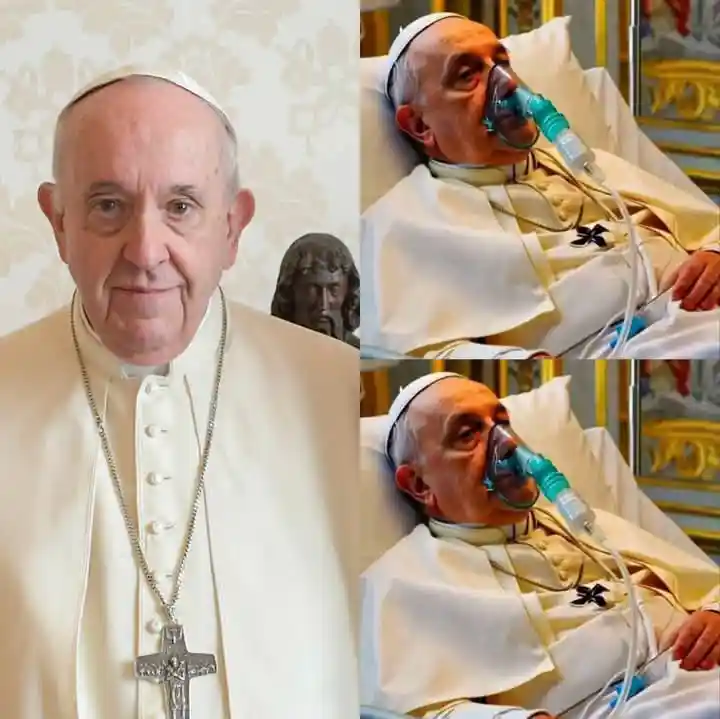Pope Francis Dies at 88: A Legacy of Reform, Compassion, and Controversy
- Advertisement -
Vatican City – Pope Francis, the Argentine-born reformist who reshaped the Catholic Church with his progressive views while drawing criticism from traditionalists, has died at the age of 88, the Vatican announced.
Born Jorge Mario Bergoglio on December 17, 1936, in Buenos Aires to Italian immigrant parents, Pope Francis rose from humble beginnings to become the 266th pontiff and the first Jesuit and non-European pope in more than a millennium. He passed away after years of battling multiple health issues, including diverticulitis, pneumonia, and bronchitis, which increasingly limited his mobility and stamina in his final years.
Final Rites and Burial Plans
- Advertisement -
In accordance with tradition, Pope Francis’ body will be displayed in St. Peter’s Basilica, where the faithful can pay their last respects. However, honoring his personal wishes, he is expected to be buried at the Basilica of St. Mary Major, located outside the Vatican walls.
A papal conclave, consisting of cardinal-electors from around the world, will soon convene in strict secrecy to elect his successor.
A Papacy of Firsts and Fierce Reforms
- Advertisement -
Elected in March 2013, Pope Francis succeeded Pope Benedict XVI, who had shocked the world by resigning—becoming the first pope to do so in nearly 700 years. Francis took over a Church mired in sexual abuse scandals, financial mismanagement, and institutional fatigue.
From the outset, Francis distinguished himself by embracing humility and reform. He shunned the lavish papal apartments, chose simpler attire, and placed social justice, poverty, and inclusivity at the heart of his ministry.
Among his most groundbreaking decisions was his outreach to the LGBTQ+ community, notably in December 2023, when he approved blessings for same-sex couples—an unprecedented move that divided opinion within the global Church.
- Advertisement -
Controversies and Resistance
While hailed globally as a moral and compassionate leader, Pope Francis’ tenure was not without controversy. His efforts to address clerical sexual abuse led to significant reforms, including sweeping revisions to Canon Law and stricter accountability measures for bishops. However, many survivors and advocates argued that his actions did not go far enough, especially when Church figures were directed to report abuse internally rather than to civil authorities.
In the United States, a faction of ultra-conservative bishops and theologians openly opposed many of Francis’ initiatives. He faced backlash for urging Catholics to receive the COVID-19 vaccine, advocating for climate change policies, and softening the Church’s stance on divorce and remarriage.
Balancing Progressivism with Conservatism
Despite his reformist image, Francis upheld several traditional Catholic doctrines. He consistently opposed abortion, comparing it to “hiring a hitman.” He also maintained the Church’s opposition to the ordination of women and continued to support clerical celibacy.
- Advertisement -
Still, he called for a greater role for women in the administration of Church affairs and commissioned studies on the historical role of female deacons.
A Global Papal Figure
Francis’ global influence extended beyond Church walls. In 2015, he became the first pope to address a joint session of the U.S. Congress, using the platform to speak about immigration, environmental protection, and human dignity.
He frequently denounced xenophobia, economic inequality, and the mistreatment of migrants—issues that resonated worldwide. His papacy reflected a deep commitment to the marginalized, the poor, and the outcast.
From Bouncer to Bishop
Before entering the priesthood, Jorge Bergoglio worked as a bouncer, a janitor, and trained as a chemist. Ordained as a Jesuit priest in 1969, he rose through the ranks to become Archbishop of Buenos Aires in 1998. In 2001, Pope John Paul II elevated him to Cardinal, paving the way for his eventual election as pope in 2013.
Legacy
Pope Francis leaves behind a complex but impactful legacy. He will be remembered as a spiritual leader who tried to bridge centuries-old tradition with modern values, and as a pastor who sought to put the Church back in touch with the people.
His passing marks the end of a transformative era in Catholicism, and the beginning of a new chapter as the Church prepares to elect its next spiritual leader.
May he rest in peace.
- Advertisement -


